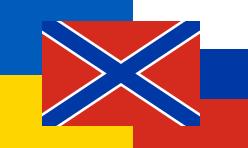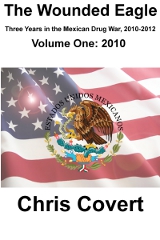Anther interview of Roman Protasevich in 2015

2021-05-27
Posted by: badanov
Direct translation of the article (Edited)
Russkaya Vesna (Russian Spring) has already shown an interview with this week's main newsmaker, Roman Protasevich, which he gave to Radio Liberty in 2015 *.
There he talks about his participation in the Belarusian detachment "Pagonya" and the neo-Nazi punitive battalion "Azov", emphasizing that " he does not regret anything ."
A 2014 news article (in English) about the Belorusian detachment in Ukraine in 2014 can be seen here. There is little about the Pagonya Detachment on the internet after this article. Azov Regiment activities took place beginning around that time, but the battle in Ilovaisk happened about 30 days later.
Today we want to show you another interview, this time to the Ukrainian edition of "Focus". It was released on June 16, 2015 under the title "Brotherhood War. What the Belarusian volunteer is fighting for in Donbass".
Says Protasevich:
"I am a Belarusian, Ukrainian and Pole by origin. I was on the Maidan for about a month. During the clashes, he received a head injury and went home to Minsk. This was my first visit to Ukraine.
Many of my relatives suffered from the Soviet regime. Perhaps that is why I am not indifferent to the fate of Ukrainians: I believe that the Belarusian and Ukrainian people have a common enemy - the Kremlin.
In recent years, the Belarusian authorities have persecuted me: I was in the opposition for a long time, but then I became disillusioned with it. I am a nationalist, I consider myself a moderate right.
When the war began in the east of Ukraine, I could not stand aside.
I tried to join the "Donbass" battalion, but failed: I did not get through the numbers indicated in the social network. Then I learned that the Belarusian detachment "Pagonya" is recruiting volunteers to take part in the hostilities in the ATO. I wrote to them.
After some time, I was invited for an interview. I did not have a military education and experience of participation in hostilities. I am a journalist.
"Pagonya" is not an independent combat unit. It is rather a people's organization, an association of the warring Belarusians. After the volunteers are selected, they are sent to the Ukrainian volunteer battalions.
The selection consists of questionnaires and interviews, psychological tests. The questions are designed in such a way that sooner or later a person will "pierce" on some trifle if he is lying.
Then the volunteers undergo combined arms training, but without weapons.
I had the opportunity to get into "Azov", "Aydar" or "Donbass". I was in the very first set, so I ended up in Azov. I arrived in Ukraine in July. In the battalion, we underwent tactical and medical training. Then there was the course of a young soldier and sending to the ATO.
Now recruits are training according to the latest methods - they are taking the Azov-Spartan course. It is based on the training course for fur seals in the United States. This is a serious test. People who have problems with psychological stamina are eliminated at this stage.
In war, every minute is unpredictable. You can drink coffee in the trench, and die in a second.
This is a huge challenge: I lost two very close friends in one day.
During the first rotations, it was hard to see that people were resting, living their own lives. How so? We came to defend your country, and you go to clubs, complain that everything is bad, and do nothing.
Now, after a long stay at the front, I understand that war is not for everyone. I am fighting in order to keep this peaceful life like that.
The guys who did not go through the war are in some ways happier than me: they do not know much. But in some ways I have an advantage over them: I understand the real cost of life, the cost of friendship is much greater than they do.
They did not experience such strong emotions: chilling fear, rage.
I took part in all Azov's operations and was wounded. I have never regretted that I got involved in all this.
I do not feel like a foreign body within the organization: I am a fighter like everyone else.
I've met people who are attracted to war. It happened to talk with foreigners who participated in many wars and no longer imagine their life otherwise. But there are not many of them.
About a hundred Belarusians are fighting for Ukraine.
On the part of the separatists, there are also my compatriots, however, I do not consider them as such: they are enemies.
I know that two Belarusian policemen are fighting on the side of the separatists in Shirokino.
In Shirokino, while cleaning warehouses, the guys recently discovered a patch with the logo of a Belarusian opposition organization, which was known in the 90s. It was a strange find. The first reminder of Belarus on the other side of the front.
The patch had not been used before, it was completely new, it was in the bag. Apparently they were saving it for a special occasion.
It seems to me that the separatists were preparing some kind of provocation. And they unsuccessfully chose this logo in Google on the request "Belarusian opposition organization".
I am a volunteer and do not get paid for the service. They put shoes on, dress us, provide everything.
When I return home, nothing good awaits me. The Criminal Code of the Republic of Belarus states that persons who participate in an armed conflict on the territory of a foreign state and are not members of state military formations are subject to punishment. Article 133
I am in a regular military formation and do not fall under this article. It's another matter that the Belarusian KGB doesn't need to prove anything.
You can always say that during your arrest you hit a police officer in the face, damaged his tooth enamel and now you will receive seven years of strict regime.
So far, no one from the special services has come to my loved ones, perhaps because I am nowhere to be seen.
My views and those of my parents often did not coincide, I am used to it.
My mother was hostile to my decision to go to war. She is Belarusian, but she grew up in Russia, so the Russian world is close to her.
We agreed that this was my decision.
Obtaining Ukrainian citizenship is a very difficult issue. Despite their promises, the authorities do nothing to help people who are fighting for their country.
In order to speed up the process, you need to actively light up on social networks, speak out, criticize, ask for trouble.
If you are noticed, your chances of getting at least a residence permit will increase.
I need to obtain Ukrainian citizenship in order to legalize my stay here and be able to safely travel home to Belarus. "
It is noteworthy that in the fall of 2020, in an interview with Russian blogger Yuri Dudyu Protasevich, he already stated that "all this time he was doing only journalistic work," and when asked whether he participated in hostilities, he firmly replies that he did not.
* The organization is included by the Ministry of Justice of Russia in the register of NPOs performing the functions of a foreign agent
If you have something to add, Fire Away!
Number of Comments so far: 0
Click here for a list of stories in the The 2014 War in Ukraina category



